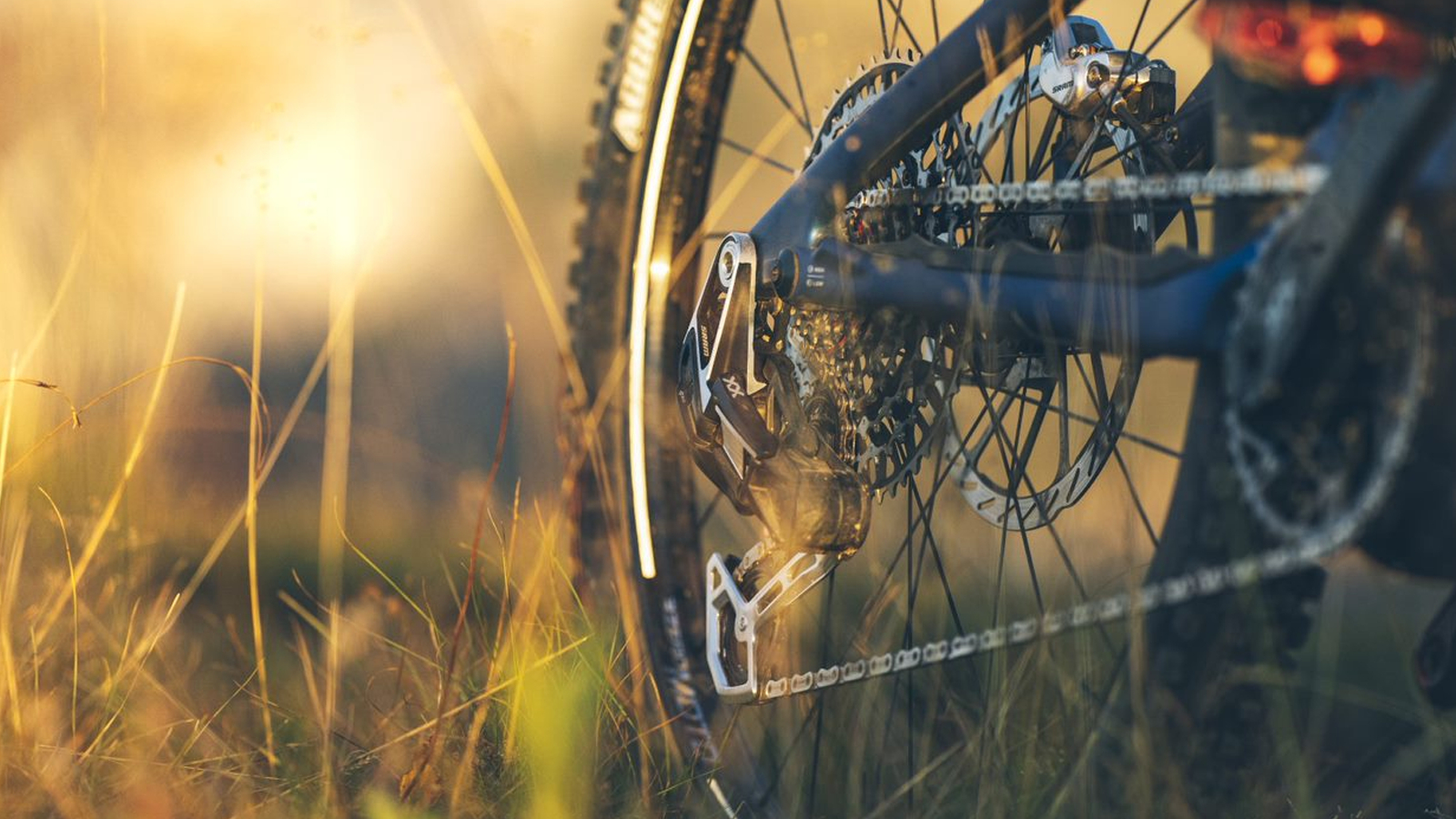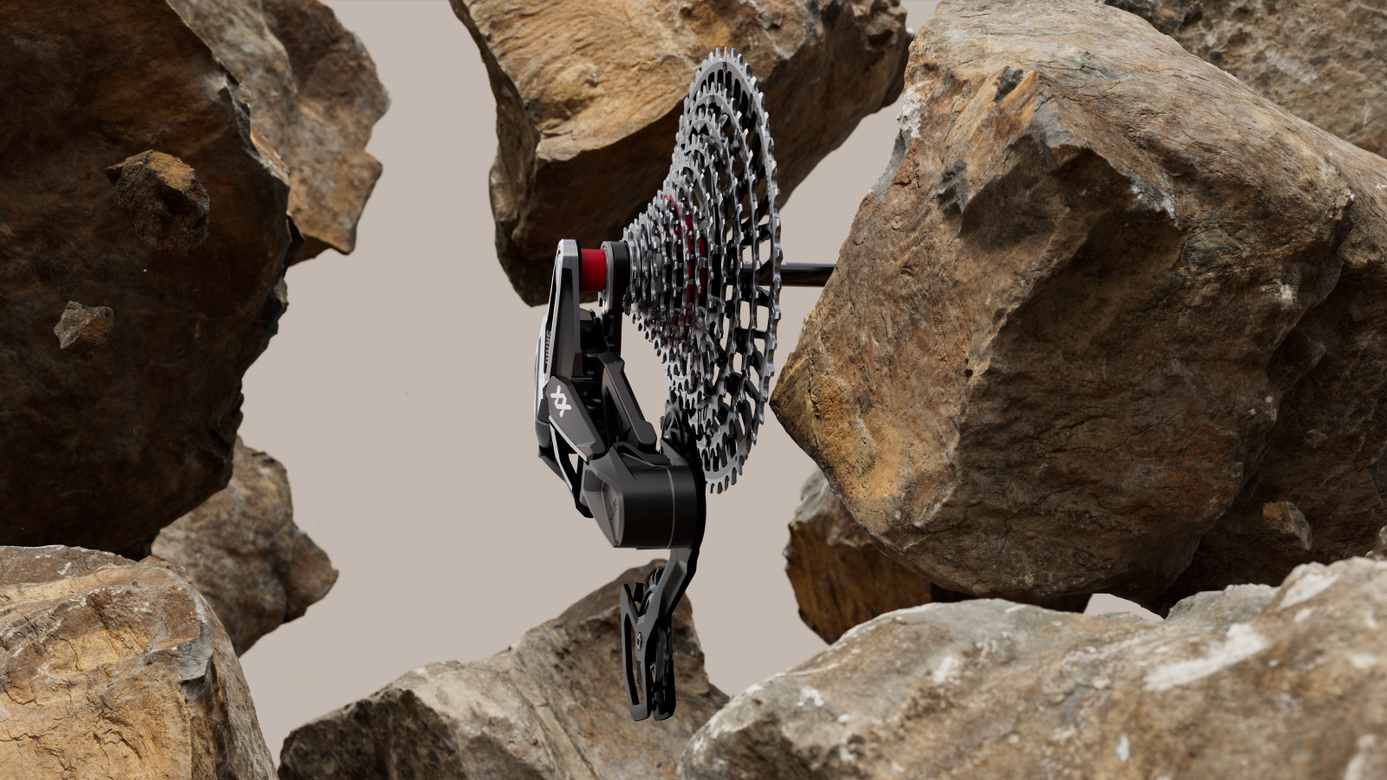
SRAM has launched three new mountain bike transmissions which could mark a significant shift in drivetrain tech with promises of increased robustness, lower weights, simpler installation, and better performance.
It's been almost two years since SRAM last upgraded a mountain bike drivetrain when they introduced the electrified mid-level GX AXS drivetrain. The GX AXS may not have been technically revolutionary, but it marked a significant drop in price and opened up wireless electronic shifting to a lot more riders.
The same can't be said about the new transmissions – SRAM are referring to the new system as a transmission, not drivetrain – as the company seeks to revolutionize the fundamentals of the derailleur as well as updating almost every single component in the system.
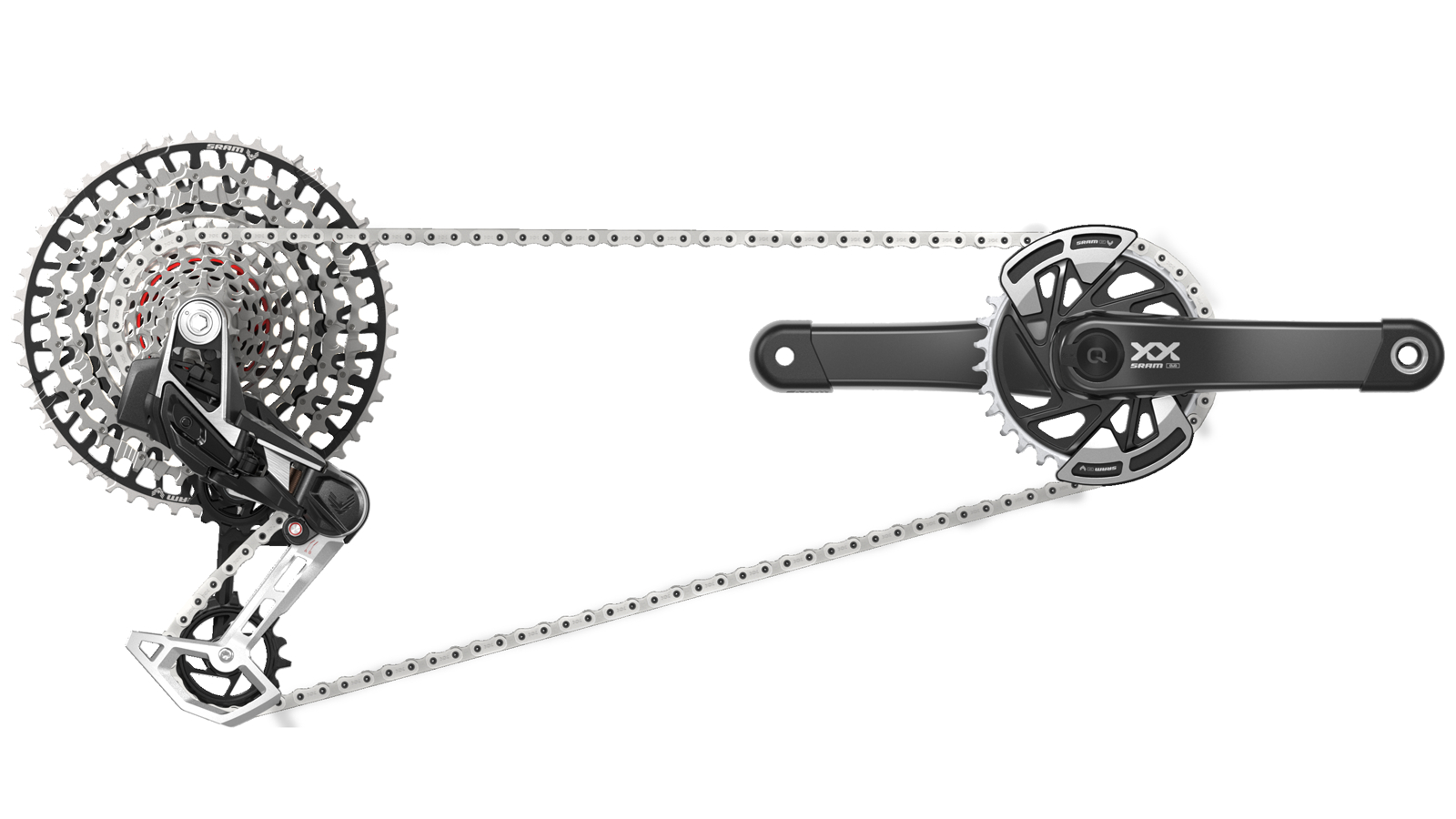
Most notable is the 'Full Mount' hangerless design. For almost as long as bikes have had gears, derailleur hangers have been used to protect the frames from damage in the event of a crash or bash. The new “T-Type” rear mech no longer uses a hanger, nor does it feature any adjustment screws. Instead, SRAM directly mounts the derailleur to the axle in order to simplify installation and adjustment.
The three new transmissions are designated XX SL for cross-country, XX for trail riding, and XO is aimed at enduro riders. There are also some additional add-ons such as cranks for the best eMTB motors.
Our technical editor, Guy Kesteven, has been putting the miles in on a XX SL Eagle Transmission test set. For more on how this innovative new drivetrain rides, check out his SRAM XX SL Eagle Transmission review.
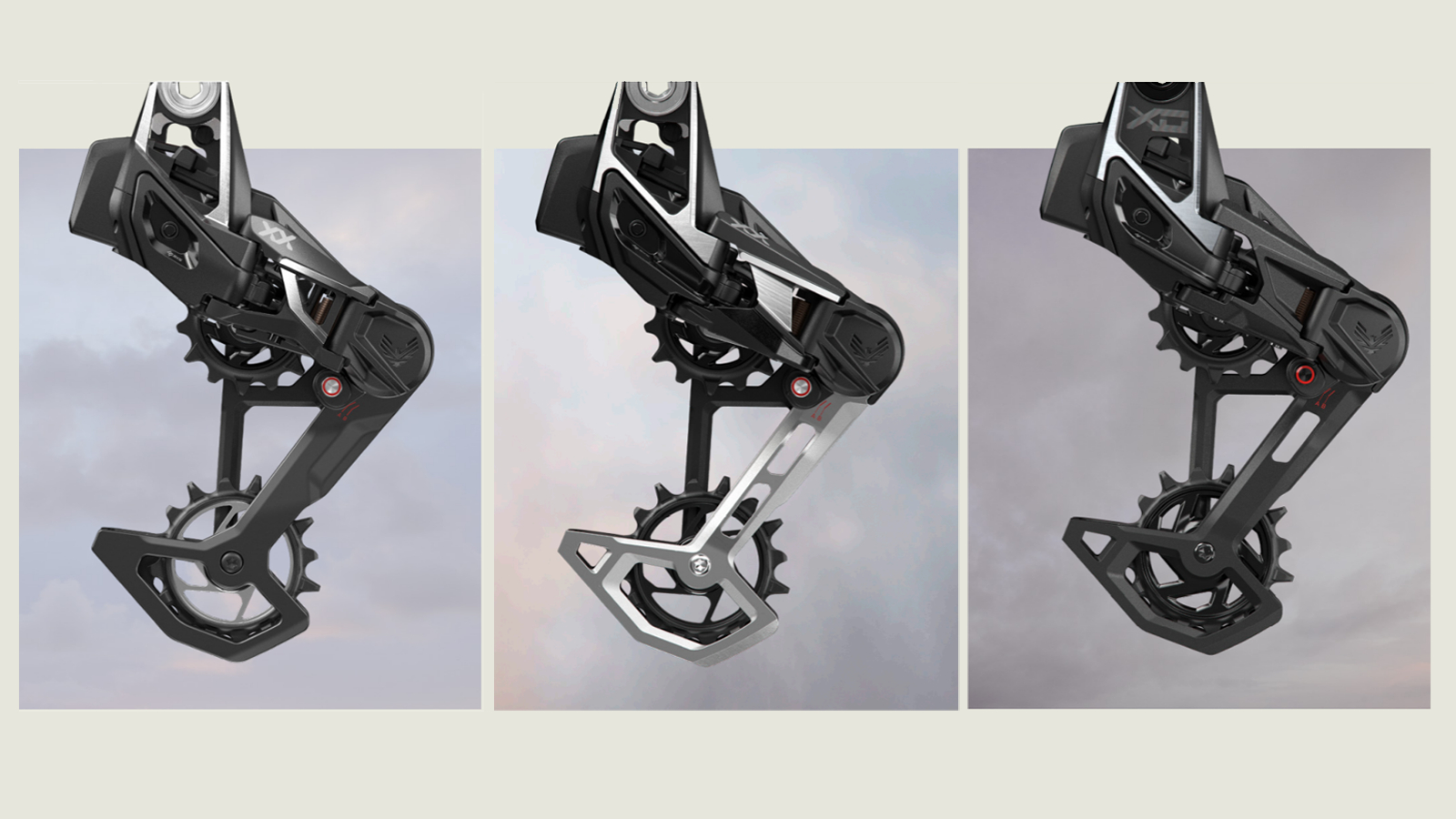
Hangerless T-Type derailleurs
The most significant update is SRAM moving to a new hangerless derailleur design. Up until now, almost all derailleurs have been mounted to a hanger that is designed to protect the frame from damage in the event the derailleur is impacted.
The new T-Type derailleur instead fixes to the axle, keeping it in line with the wheel and maintaining the consistent position with the cassette. A more integrated approach has allowed SRAM to simplify the derailleur by removing all adjustment screws which is said to make setup much easier. That means its fixed in place, so there is no b-limit screw to adjust fore and aft or high/low limiters either.
The mech has a more tucked in profile to avoid catching on obstacles, the cage also ‘yaws’ slightly, pointing the chain towards the chainring to give better chain alignment and which SRAM says "achieve the smooth and quiet operation of the transmission in all cogs." The overload clutch is also stronger so there’s less chain movement, but that increased tension does mean battery life is slightly reduced.
All the derailleurs feature specific features based on their intended riding purpose. The cross-country XX SL has been pared down and features a carbon cage to reduce weight. The XX features replaceable skid plates while the XO1 adds protection covers on the B-knuckle and has an outer link that is fully replaceable, or upgradeable to the XX skid plate.
The jockey wheels on the XX SL and XX have a neat new trick too, in the instance that something gets caught in the wheel, instead of jamming the outer section continues spinning.
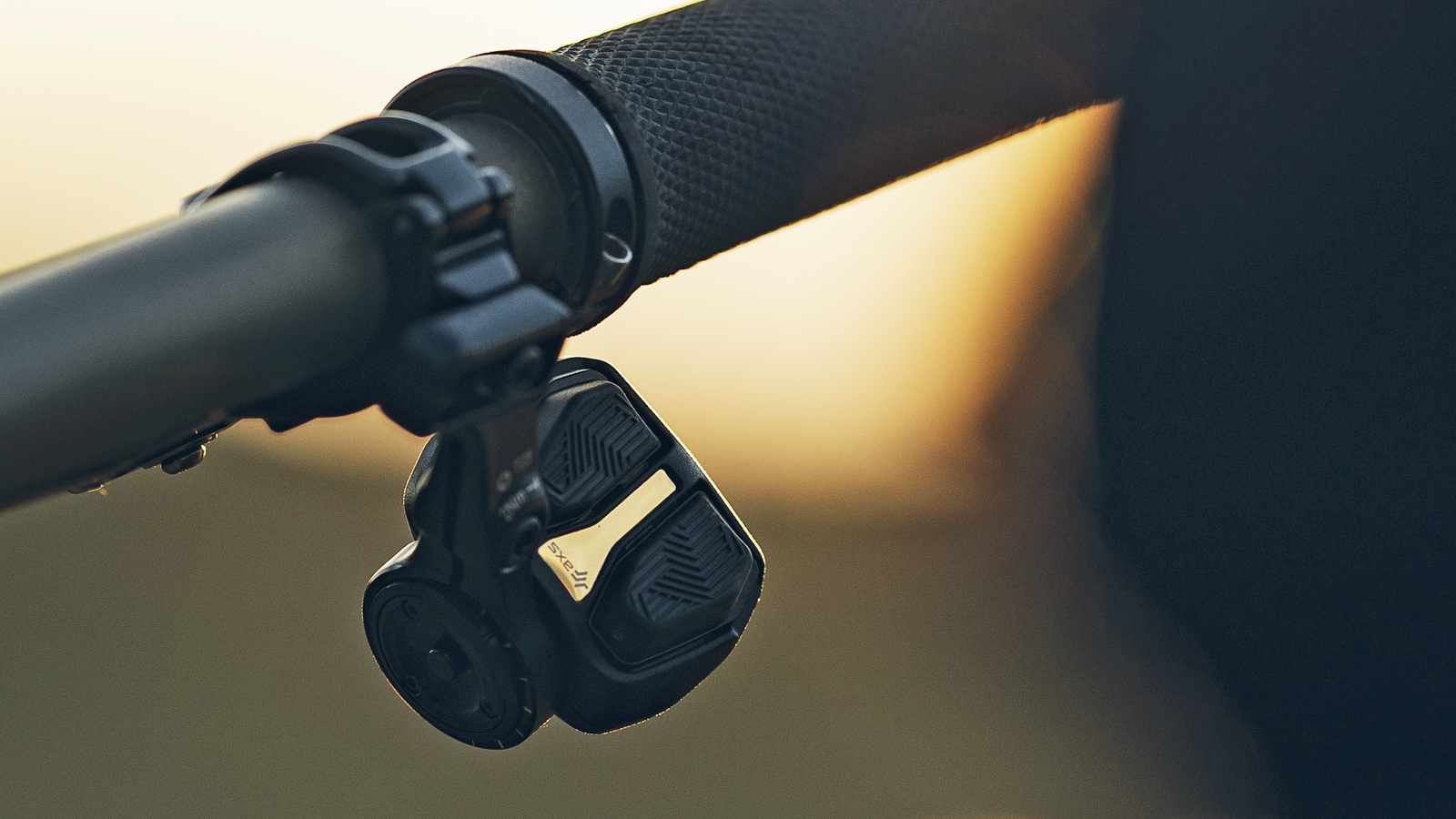
Controller Pods
SRAM's current AXS shifter isn't popular with everyone, myself included. The addition of a simplified up/down button controller is going to be a welcome addition to the AXS ecosystem.
The new shifter pod is lighter, more compact, and vastly more adjustable, but most importantly the simplified "click and fire” two-button design should make gear changes a lot easier.
The paddles can be customized and personalized via the AXS App as well as flipped to be mounted on either the left or right. We don't expect that many riders suddenly start running their gear shifter on the left-hand side, but there is a chance bike's may be set up with two shifters if the SRAM eMTB motor rumors are true.
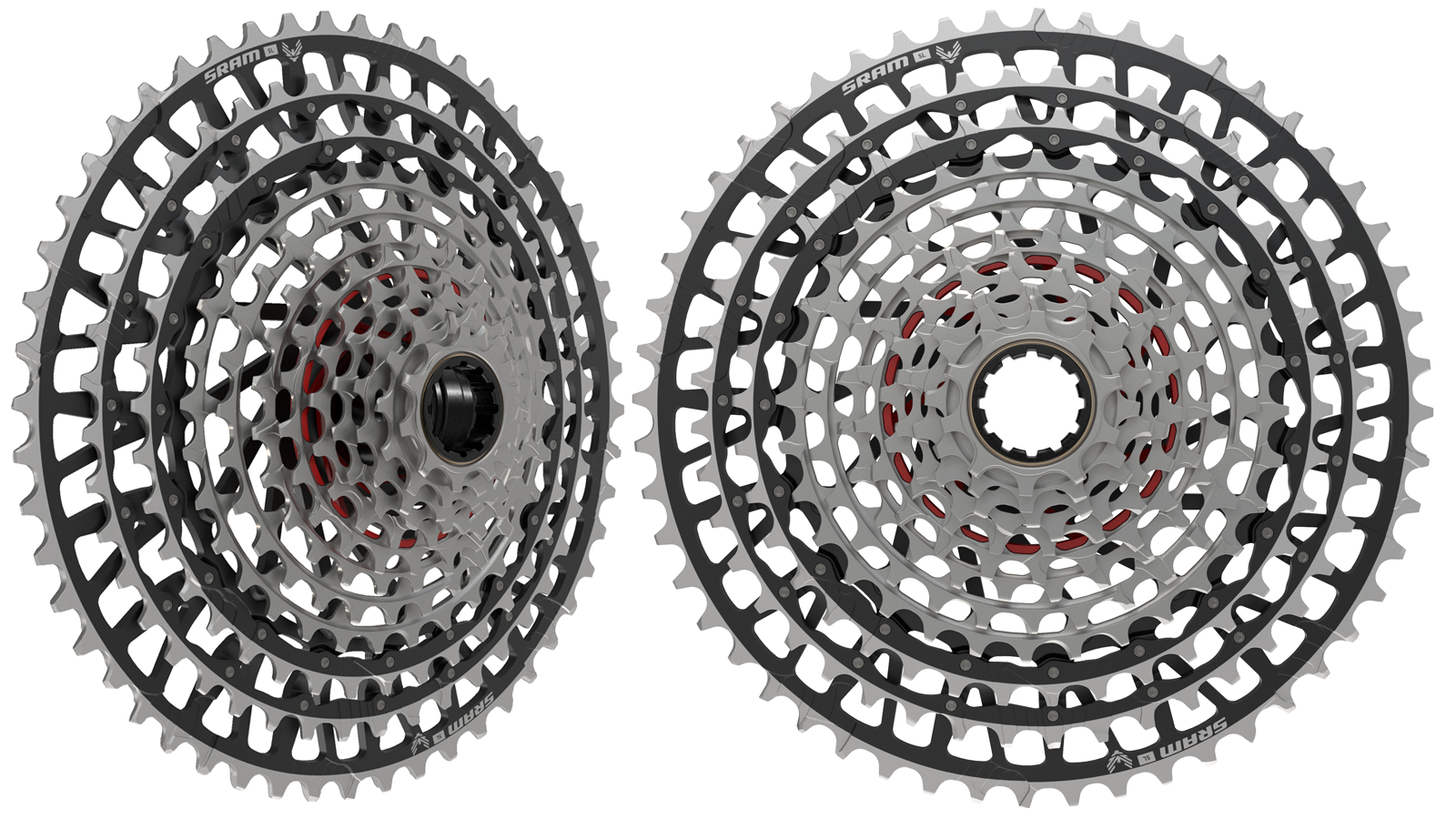
Cassette
The T-Type cassettes use the familiar single-piece machined steel ‘X-Dome’ main block section with alloy ‘gear 1' back plate construction on XX and X0. The XX SL uses alloy for gears 1-3 for reduced weight though. You still get the Eagle 520 percent gear range, but the spread is evened out with 38 and 44 tooth cogs for less of a lurch into the 52-tooth crawler gear. The big difference in performance comes from a complete re-profiling of the shift ramps on the teeth though.
The new shift mapping of the cassette should ensure both up and downshifts happen precisely. SRAM is confident that you can shift under full power too, going as far as saying, "X-Sync design literally means the harder you pedal, the better it shifts."
The cassettes also sits slightly further out, using a 55mm chain line for better shift accuracy and durability. The cassette still uses SRAM's XD driver, and the XO cassette is fully e-MTB approved.
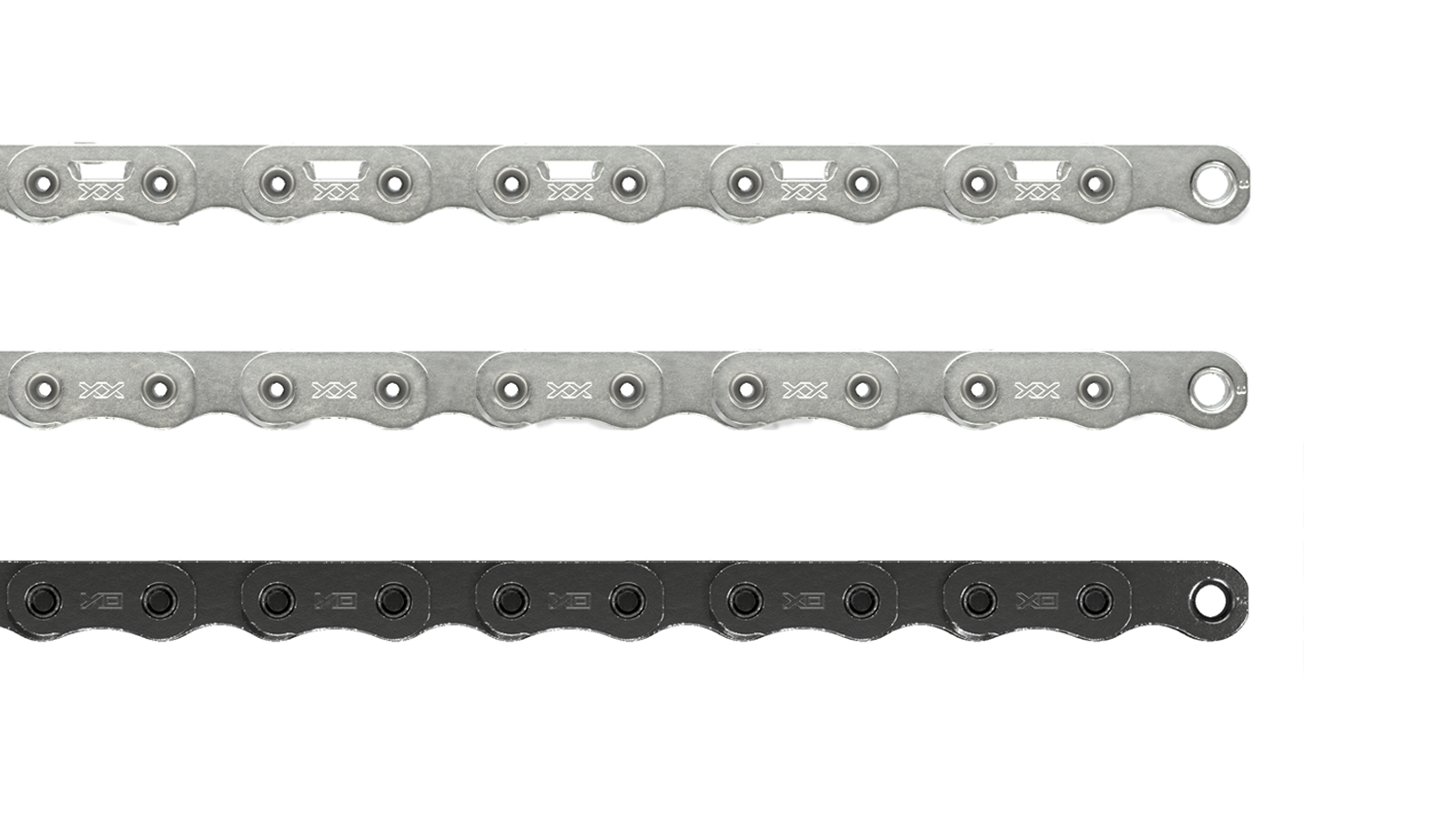
Flat top chains
SRAM's road chains have used the flat top design for a while now so it's not a surprise to see the technology make its way to mountain bikes. This is a MTB-specific design though and the flat top design is said to improve shifting performance and robustness.
SRAM has added cut-outs to save weight while the XO and hollow-pinned XX are rated as the strongest chain SRAM has ever made. The XO has a Dark Polar finish with a PVD coating to resist corrosion, it's also the only T-Type chain that's e-bike approved.
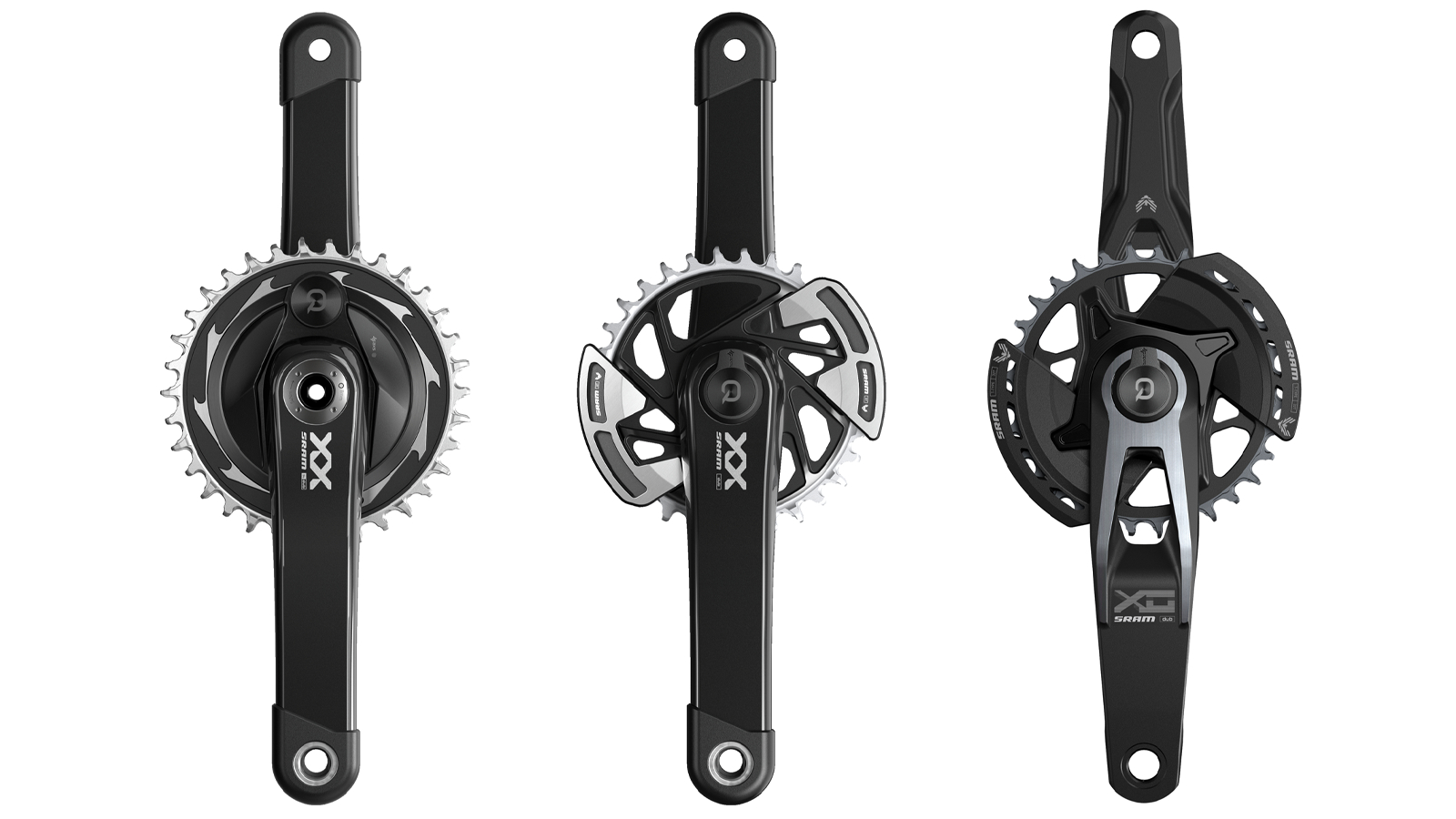
Cranks
Spy shots of some radical new SRAM cranks with a bash guard and a hole in the arms have been doing the rounds for a while now, but they officially rear their head as SRAM's new alloy XO crankset. The XX crankset uses a carbon construction with a foam core and is fitted with a removable (and replaceable) bash guard system. The least eye-catching crank is probably one of the most exciting, using a hollow carbon design the XX SL is SRAM's lightest-ever crankset and they are claiming it to be "the lightest ISO-certified crank on the market". They also claim to have done this without any sacrifices in strength or pedaling stiffness.
All three of the new cranksets can also be specced with Quarq power meters. The XX SL uses a chainring-based power meter that's accurate to 1.5 percent and auto recalibrates while you ride. Both the XX and XO use a less accurate (three percent) but bash guard compatible spindle design. There are also two ISIS interface e-MTB cranks too, an alloy XO and XX carbon crankset.
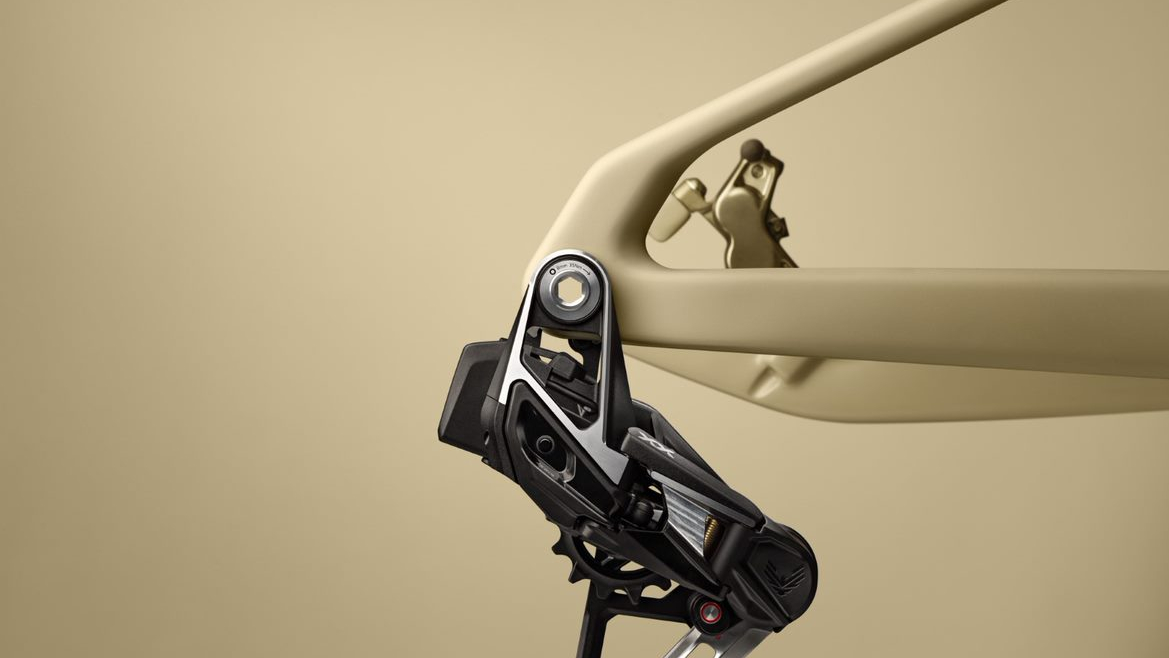
Leaving us hanging
Moving to a radically different mounting method, along with a plethora of upgraded components might have hopeful upgrades worrying about compatibility. There are some limitations, but SRAM has already sold the seeds of compatibility through the rapid uptake of their ‘Universal Derailleur Hanger’. Essentially, any bike that is compatible with SRAM's standard will be compatible with the new hangerless design. That covers many of the big brands who have been adopting the system for a while but will leave many of the more eclectic brands playing catch up.
The cassettes and chains are specific as well although existing AXS users will be able to upgrade to the new cranks (chainrings are backward compatible) and the simplified shifter if they are looking to eke out a little more performance.
The system is compatible with Flight Attendant, although you will need SRAM AXS Eagle Transmission spider or spindle-based Quarq power meters which function as the Flight Attendant pedal sensor, as well as a power meter.
